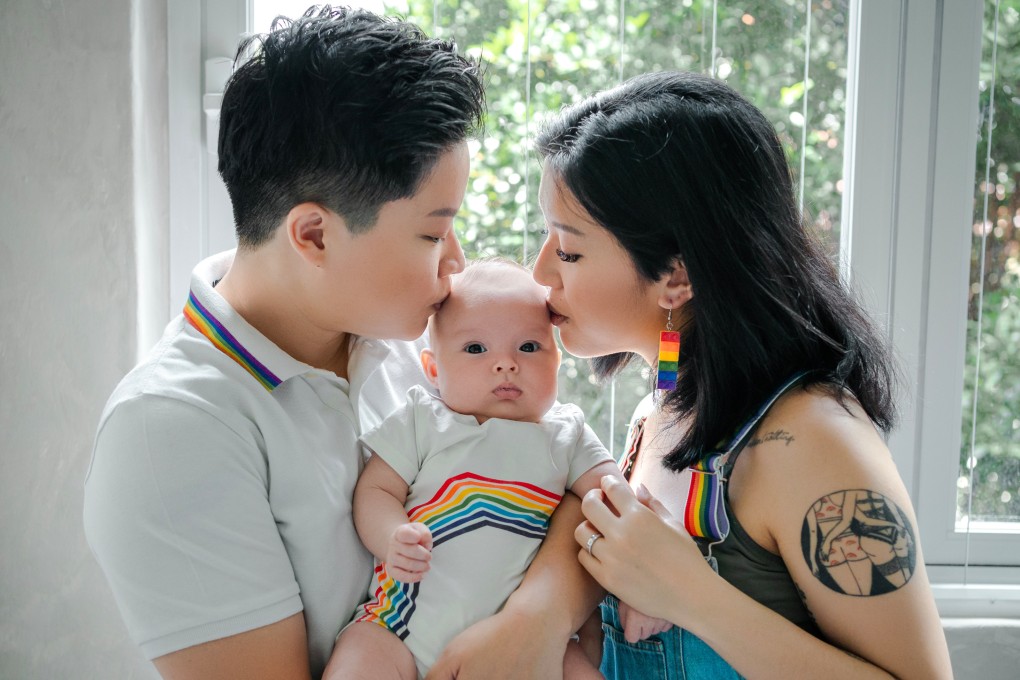Singapore’s 377A: 1 year after repeal, LGBTQ couples ask for more but conservative pushback in society still strong
- Gay couples in Singapore say the change in the law has helped but other hurdles remain for equal rights, including for marriage and children
- The conservative majority of the population is against full rights for LGBTQ couples and more public display of their identity, an academic says

After Cally Chia and her wife decided they were ready to start a family, she underwent a year-long process of harvesting and freezing her eggs, embryo creation and in vitro fertilisation before their daughter was born in August last year.
In Singapore, Chia is still legally considered a single, unwed mother, and her family of three is not recognised by the state. This means she does not qualify for many family planning resources, tax relief, bonuses and other benefits that are available for heterosexual family units, said the 29-year-old, who registered her marriage in Melbourne in 2022.
Simply fulfilling her aspirations of being a mother and starting a family with her 40-year-old wife Ching Chia, who works as a property agent, required immense financial resources – and clever legal manoeuvring.
The challenges they have overcome reflect the barriers that continue to exist for many queer couples in Singapore, despite the country’s historic move to strike its anti-gay sex law off the books a year ago this week.